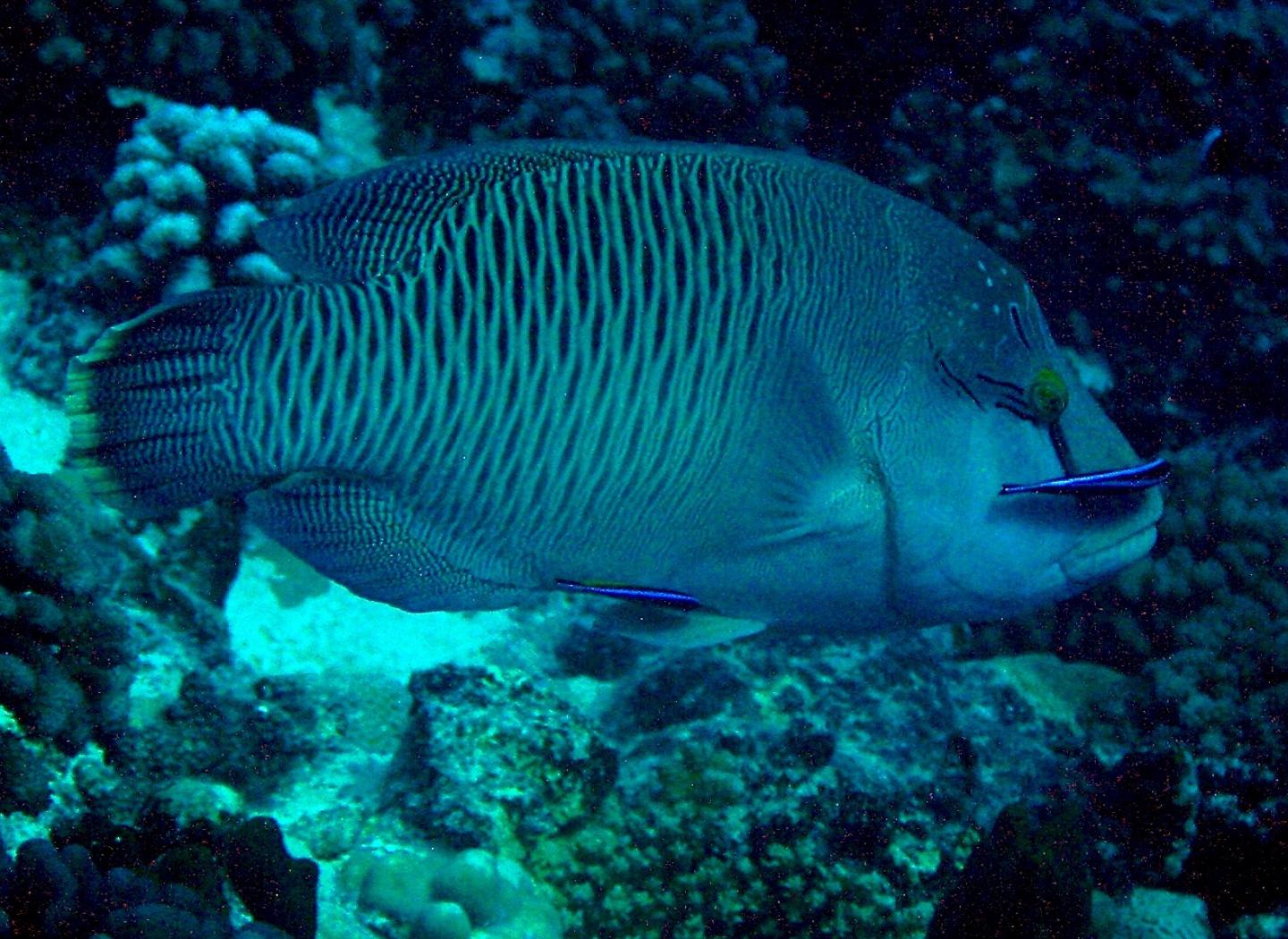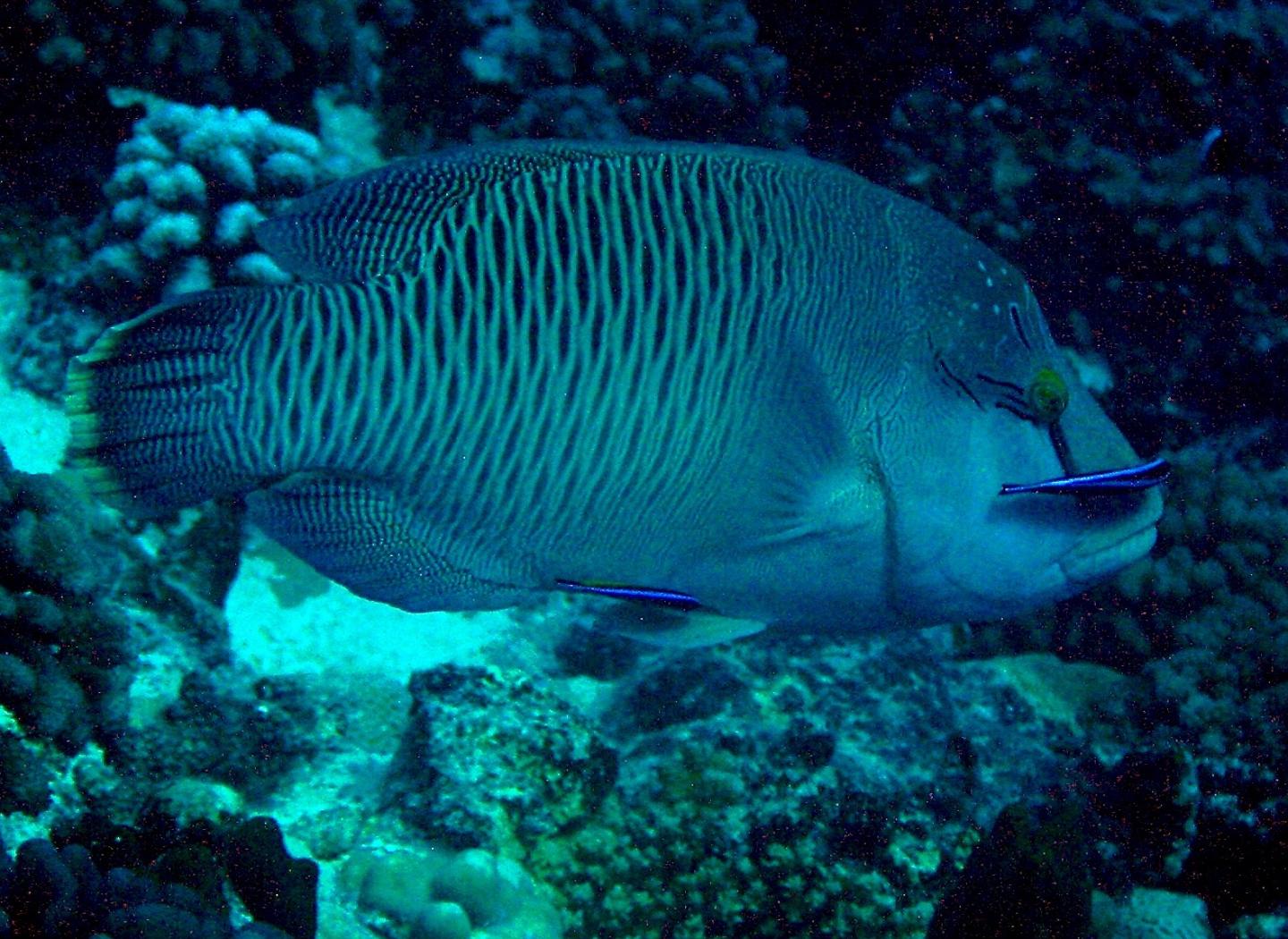
Credit: Suzanne Mills
Noise from motorboats changes the behaviour of cleaner fish and the species they help.
Cleaner fish are species which eat parasites from other fish – known as "clients" – in a relationship which benefits both.
Researchers from the UK, US and France tested the effects of boat noise on bluestreak cleaner wrasse – and found an impact on both cleaners and clients.
In noisy conditions, cleaners are more likely to "cheat" by nibbling at their clients' protective mucous layer rather than cleaning off parasites – and clients are more likely to stay and let this happen.
"Cleaners were biting their clients during boat noise and, instead of leaving or retaliating, the clients let the process go on for longer than normal," said lead author Dr Sophie Nedelec, of University of Exeter.
"This suggests cognitive impairment in either one or both parties."
The researchers observed 24 bluestreak cleaner wrasse cleaning stations, and at 17 cleaners cheated more often on their clients by nibbling at their protective mucous layer.
Dr Suzanne Mills, of EPHE and CRIOBE, said: "One explanation is the clients are distracted by boat noise and cleaners are taking advantage of this to cheat on their clients."
Professor Isabelle Côté, of Simon Fraser University, added: "Effective removal of parasites by cleaners is critical to coral reef fish health, abundance and diversity.
"Our evidence that boat noise is disrupting these interactions raises concerns for the resilience of coral reef systems where they are currently exposed to multiple threats."
Professor Andy Radford, of the University of Bristol, said: "Experiments that consider behaviour of wild animals in natural conditions – as we have done in this study – are crucial if we are to understand fully the impact of noise caused by human activity.
And Dr Steve Simpson, of the University of Exeter, said: "This study highlights important implications for managing the noise of the hundreds of thousands of motorboats used around the world in coral reef environments.
"We are now considering acoustic quiet zones and corridors, and exploring how engine and propeller development can reduce the impact of this globally prevalent pollutant."
These results highlight the need to control man-made noise in protected habitats, the researchers added.
###
The research was carried out by scientists at the Universities of Exeter, Simon Fraser University, the University of Bristol and from École Pratique des Hautes Études (EPHE) and Centre National de la Recherche Scientifique (CNRS) at CRIOBE, France.
The paper, published in the journal Scientific Reports, is entitled: "Motorboat noise disrupts co-operative interspecific interactions."
Media Contact
Alex Morrison
[email protected]
01-392-724-828
@uniofexeter
http://www.exeter.ac.uk
Related Journal Article
http://dx.doi.org/10.1038/s41598-017-06515-2





